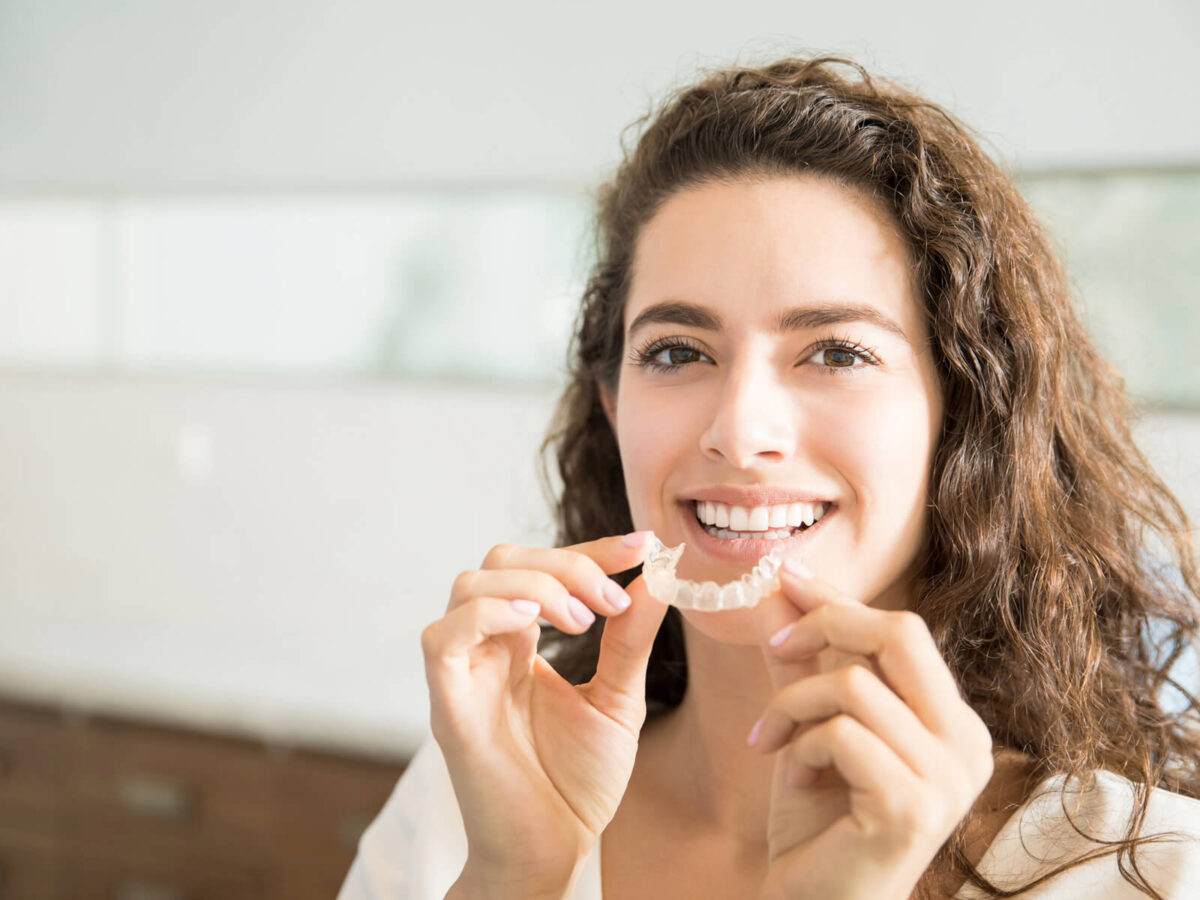Blog
Dental hygiene tips for healthy teeth & gums

What To Eat When Wearing Aligners?
If you have undergone the alignment of your teeth with braces or clear aligners, it’s a significant step towards achieving that winning smile you’ve always wanted. However, you might be wondering how this decision will affect your diet. Fear not, because we’ve got you covered. In this article, we’ll explore the dos and don’ts of eating with aligners and foods to avoid with braces while making it simple and practical!
Why Does Diet During Orthodontic Treatment Matter?
What you consume can directly impact the condition of your aligners and, most importantly, your overall orthodontic experience:
- Avoid Staining: Aligners are clear for a reason – they’re discreet. To keep them that way, you’ll want to stay away from foods and drinks that can cause staining. This includes things like red wine, coffee, tea, and dark-colored sauces.
- Prevent Damage: Certain foods can be abrasive and may damage your aligners. Think of hard or crunchy items like nuts, popcorn, and even hard candy. These come under foods to avoid with braces or aligners as they help prolong the life of your dental equipment.
- Oral Hygiene: A diet rich in sugar and carbohydrates can lead to an increased risk of cavities. Since aligners can trap food particles against your teeth, maintaining a good oral hygiene routine and mindful eating is essential.
What to Eat
Now that we know why diet matters, let’s explore eating with aligners. Here’s what you can enjoy without worry:
- Soft Foods: Foods that are gentle on your aligners are your best friends. These include mashed potatoes, yogurt, oatmeal, and soups. They are not only easy on your aligners but also your teeth.
- Vegetables: Steamed or cooked vegetables are your allies. Opt for carrots, zucchini, and broccoli. These provide essential nutrients without posing a risk to your aligners.
- Fruit Smoothies: You don’t have to give up your fruit fix. Blend your favorite fruits into a smoothie, but make sure to skip the seeds. Smoothies are not only brace-friendly but also delicious.
- Proteins: Lean proteins like chicken, fish, and tofu are great options—they’re less likely to cause damage to your aligners, and they contribute to your overall health.
- Dairy: Dairy products like milk, cheese, and yogurt are not only brace-friendly but also fantastic for your teeth. They are rich in calcium and can help keep your teeth strong.
- Soft Grains: Opt for softer grains like pasta, rice, and quinoa. These are less likely to get stuck in your aligners, making them a hassle-free choice.
What to Avoid
Now, let’s talk about the foods to avoid with braces or aligners:
- Sticky and Chewy Snacks: Stay away from sticky candies, gummies, and chewy snacks. These can get lodged in your aligners and are tough to clean.
- Hard and Crunchy Foods: Hard pretzels, nuts, popcorn, and chips are potential enemies to your aligners. They can damage or dislodge them, so it’s best to skip them.
- Sugary and Acidic Drinks: Soda, energy drinks, and fruit juices high in sugar and acidity can lead to tooth decay. Plus, they can stain your aligners, so it’s wise to limit your intake.
- Dark-Colored Sauces: Sauces like soy sauce, tomato sauce, and curry can stain your aligners. If you indulge, be sure to brush your teeth and clean your aligners soon after.
- Hard Bread and Bagels: Tough bread can be harsh on your aligners and may lead to warping or damage. Opt for softer varieties when possible.
- Chewing Gum: Chewing gum is a big no-no when you have aligners. It can stick to aligners and can be a challenge to remove.
Conclusion
Your journey to a straighter smile with aligners doesn’t have to be a restrictive one. While there are some foods and drinks you should avoid, there are plenty of delicious options to enjoy. Just remember to stay away from sticky, hard, and staining culprits, and you’ll be well on your way to success.
In addition to watching your diet, keeping up with your oral hygiene routine is crucial. Your diet and hygiene practices during your aligner treatment play a significant role in the overall effectiveness of your orthodontic care.
